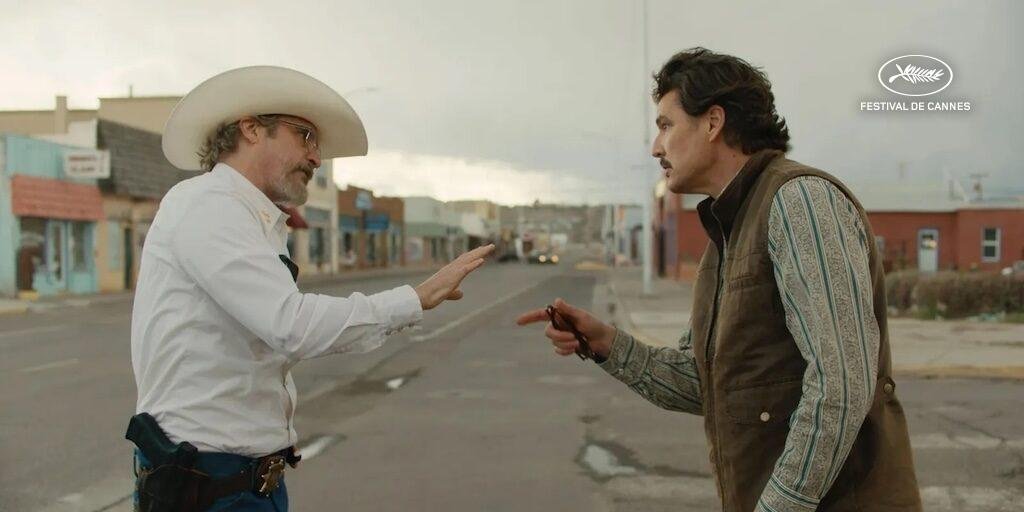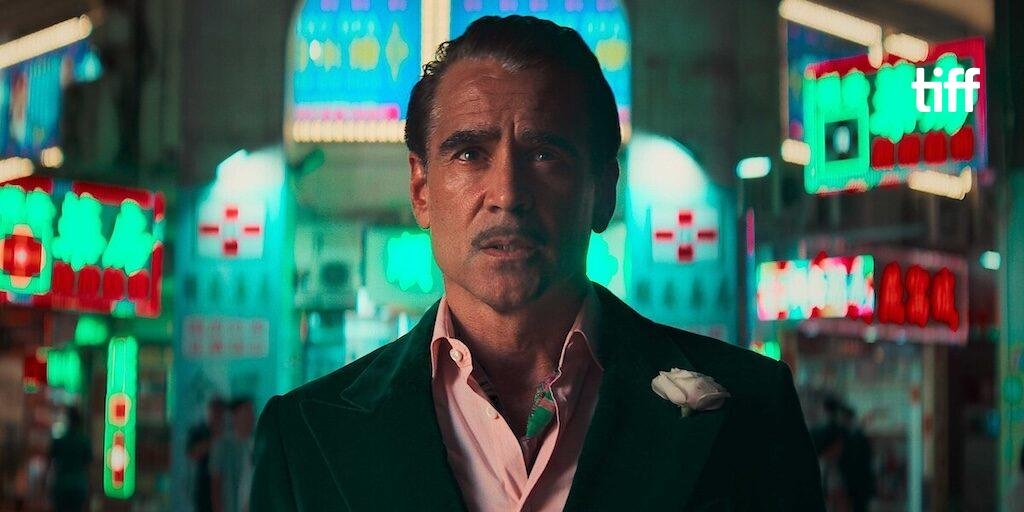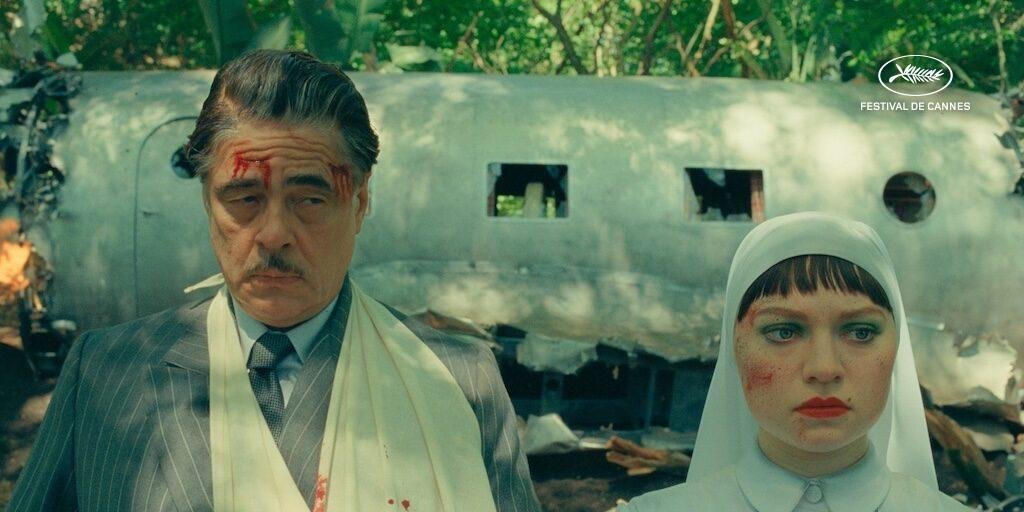ONANISTIC CINEMA
Ari Aster’s fourth film takes place in May 2020, three months after the announcement of the Global Coronavirus Pandemic, and starts with a shot that shows Joe (Joaquin Phoenix), the sheriff of a fictional New Mexico town named Sevilla County, being berated by Jiminez Butterfly (William Belleau), native sheriff of a bordering jurisdiction, after not using a protective mask within the interior of his own patrol car.
It was the time where panic was running amok on account of the scarce and uncertain arrival of information about the reach, forms of contagion and spreading of Covid-19, reason why paranoia was rampant. Joe is asthmatic, does not believe in the virus and its consequences and does not even take precautions, not even since he is supposed to set an example given the position of power he holds in the community. On top of that, he picks a fight with anyone who is shopping at the supermarket and berates an elder man who is not wearing a mask, just like him. Joe decides to fill a shopping cart and push it outside the store for him, and in this way, he imposes his own law in a community abducted by Ted Garcia (Pedro Pascal), the mayor seeking reelection, who becomes his main enemy/opponent. At the same time, Joe is married to Louise, Ted’s former girlfriend, a fact that intensifies the rivalry. Louise (Emma Stone) is an artist in a state of depression that only watches TV all day long and joins in the paranoia created by the catastrophic content of broadcast news. On account of the intromission of Vernon, a sort of new age pastor portrayed by Austin Butler, Louise and him make an escape in a state of madness and consensual passion.
What happens with Ari Aster and Eddington, after his previous efforts Hereditary, Midsommar and Beau is Afraid, is nothing more than a new display of the mediocrity that characterizes him as a filmmaker. Although it is believed that Eddington is a western or even a black comedy, the elements we find in the film are so uneven, ridiculous and far removed from the ones conforming those two genres that result in a display or a fully personal vision of Aster’s for his own enjoyment; a mishmash featuring a mix of notions of territoriality, the so called native tribes, the apparition of a novelty virus and pandemic, and even a harmful and counterproductive use of the notion of neo-nazism and supremacist hate organizations like the Ku Klux Klan, but having emerged in times marked by the Black Lives Matter movement on account of the assassination of George Floyd by police forces. Aster mixes the rivalry for power with a family drama in a fake town where a sheriff, a wife, a corrupted native community and elected officers live together… In short, the result of a microcosm of people that do not want to be such nor fulfill their roles in society.
Although endorsed by Martin Scorsese, something hard to believe but true –he even claimed to have taken inspiration from Aster for Killers of the Flower Moon—, Aster’s cinema finds a faithful following. Characteristic of extreme, fantastic and disturbing dramatic situations, the director got that Scorsesean “seal of quality”, just like the “Stephen King presents” and so many others, who do nothing more than install the belief that a new type of cinema by recommendation exists, a cinema that does nothing more than give personal satisfaction to the one making it: an onanistic cinema.
Screenwriter/Director: Ari Aster. Cast: Joaquin Phoenix, Pedro Pascal, Emma Stone, Austin Butler. Producers: Ari Aster, Lars Knudsen, Ann Ruark. Runtime: 148 minutos.





